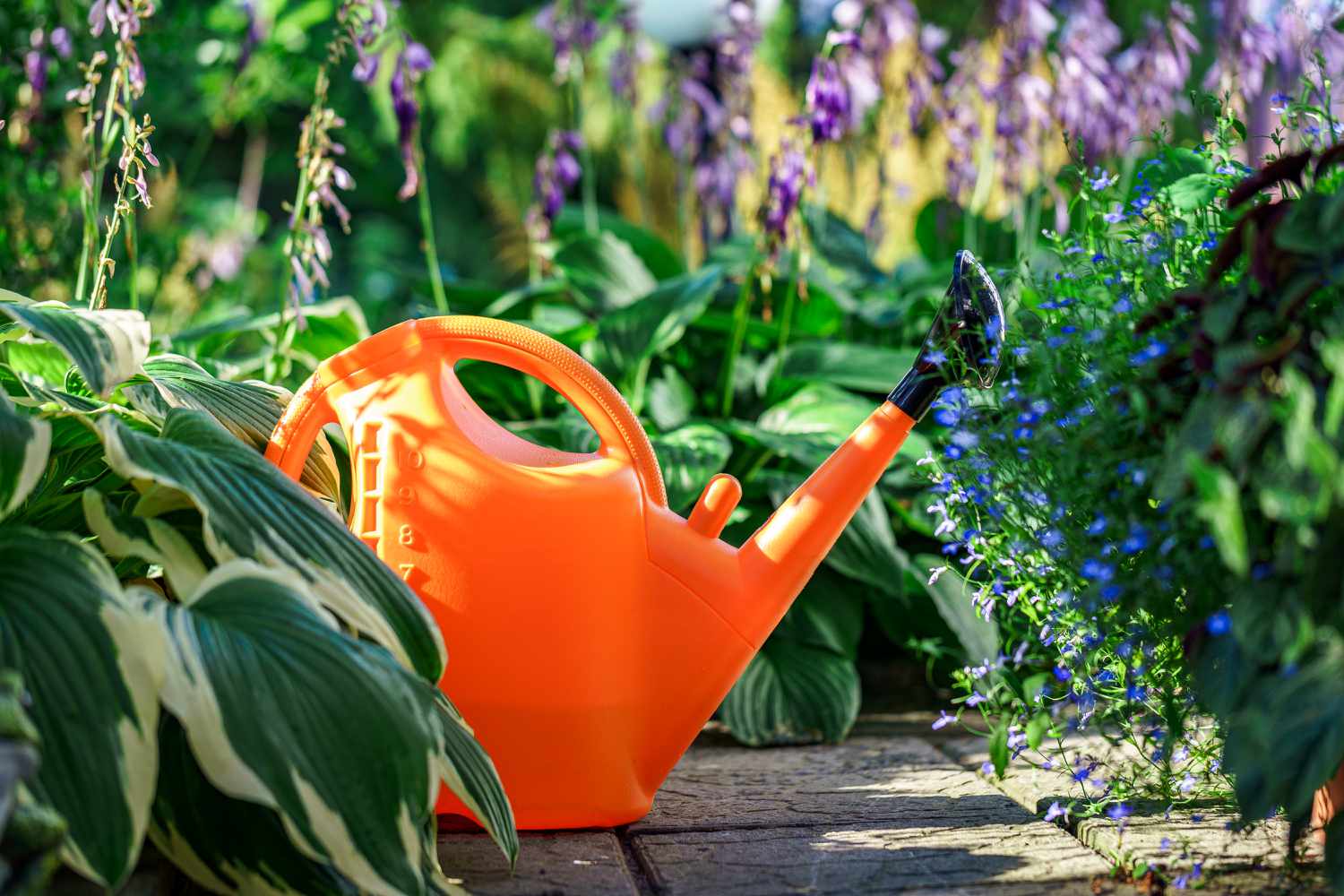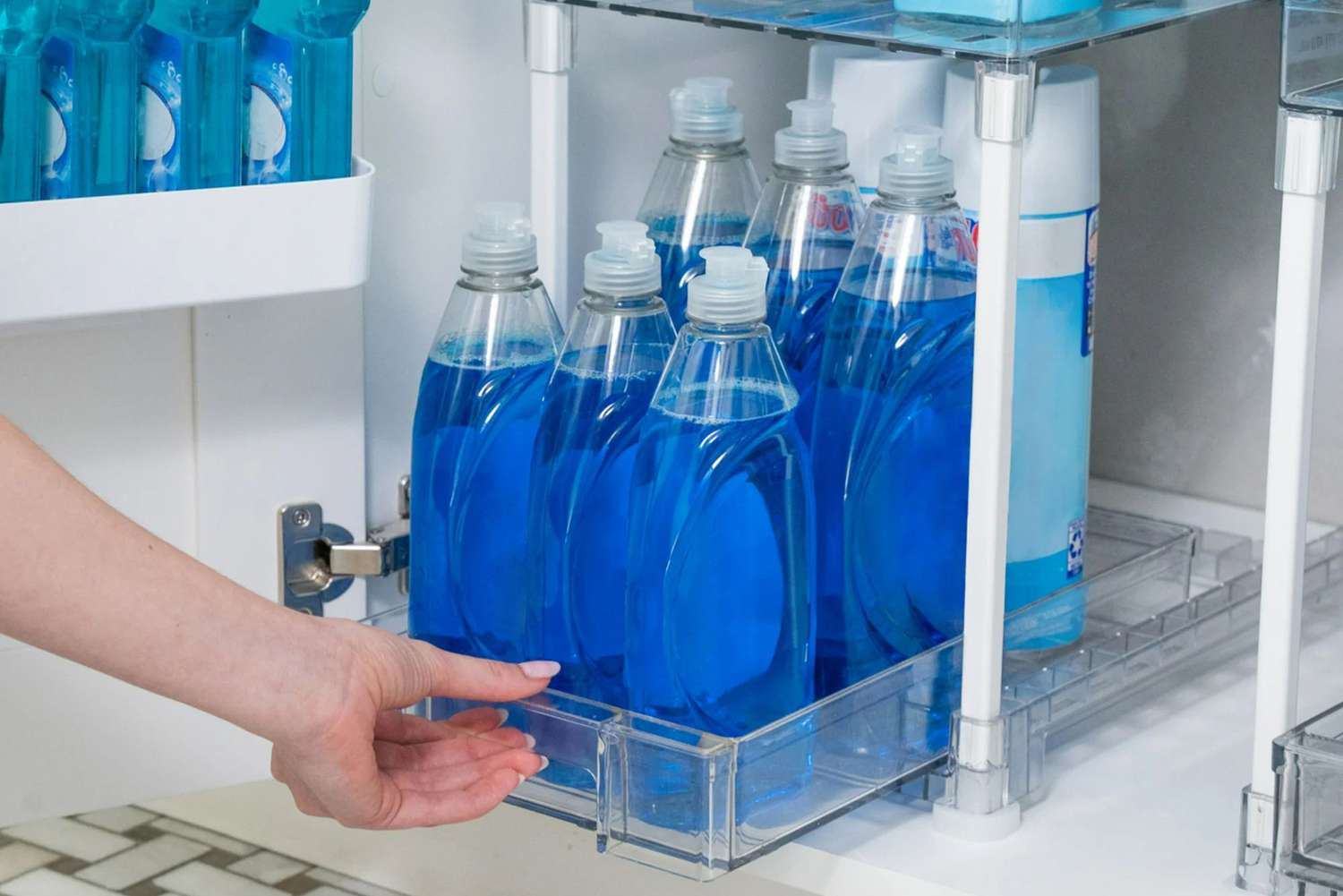
8 Gardening Habits That Are Ruining Your Plants, According to a Horticulturist
Gardening is a great way to stay active and connected to nature. Whether you’re a beginner working with a small patch of land or a more experienced gardener growing an expansive plot, the benefits of gardening can be powerful. However, it can be frustrating to put in lots of work and not see the results you’re looking for. A few poor gardening habits can counteract your efforts and keep your plants from thriving—and you may not even know what’s going wrong. So, we asked experts to share the common gardening habits that can sabotage plants.
Skipping mulch
Laura Janney, expert gardener at The Inspired Garden, can’t stress enough the importance of mulching. “Mulch helps retain moisture in the soil when it’s hot,” she says. “As a bonus, it helps control weeds and neatens up your beds. Your mulch should be 2-4 inches deep. And please, no volcanoes around shrubs and trees,” she says. Mulch has the added benefit of keeping weeds at bay.
However, when mulch is left for extended periods during cold weather, it can slow down the warming of the soil, leading to delayed plant development. So, keep an eye on the weather and adjust mulching practices accordingly.
Planting directly into the ground
Novice gardeners might think gardening is as simple as just planting a seed in the ground, but nothing could be farther from the truth. “You need to use garden soil—preferably organic—as it provides nutrients, and its structure helps with water drainage,” recommends Janney. She says the hole should be ⅓ – ½ the size of the plant, which may be quite deep for tall shrubs. Work with a lawncare specialist if you’re unsure about the right soil for the plants you have in mind to grow.
Watering too much or too little
Watering is half the battle. However, most people don’t realize how much water is needed for their plant type and climate. Too little watering leaves plants dehydrated and stressed. Also, “overwatering can be a problem both with indoor houseplants, as well as outdoor plants,” says Andrew Bunting, VP of Horticulture, Pennsylvania Horticultural Society (PHS). “This can lead to rotting of the roots and potential spread of certain diseases,”
“Most plants do not like sitting in pools of water,” Janney adds,
Check to see that drainpipes are directing water away from your plants, and consider grading your beds for water retention.
Misjudging sun conditions
“People complain to me that they just kill everything,” Janney says. “Well, when I take a look at their garden, many times, it’s because they are planting the wrong plants in the wrong spot. Just because there’s some light in a certain part of your yard, that doesn’t mean it’s enough for every plant, she explains. “Full-sun plants need at least 6-8 hours of direct sunlight,” she says. “Same goes for shade. Just because it’s a shade plant doesn’t mean it needs very little sun. Most shade plants need at least 3 hours.”
Soil compaction
“Any practice that can cause compaction to the soil can be very detrimental in the garden,” Bunting says. “Compacted soil prevents good air circulation and impedes water from penetrating the soil.”
Soil compaction is where soil particles are pressed together by activities that put pressure and weight on soil. Heavy machinery, foot traffic, or tillage might cause this. In most home gardens, you want to make sure that people are not walking on the garden bed and that you aerate as needed.
Allowing weeds to set seeds
Bunting says weeds need to be removed before they go to seed. “Allowing weeds to set viable seeds will result in the mass proliferation of weeds in the garden,” he says.
For natural weed control, try no-till gardening, digging out pesky weeds by hand or with a hori-hori gardening knife, or spot-treat weeds with vinegar spray.
If you spend just a few minutes a week looking over your garden, you can keep weeds under control. If you neglect your garden for too long, you risk ruining the plants you want to keep.
Leaving invasive plants unchecked
Bunting says certain ornamental annuals and biennials set copious amounts of highly viable seeds that can invade a garden. “Such plants include the spider flower, Cleome; foxglove, Digitalis, rattlesnake master, Eryngium, and sea oats, Chasmanthium,” he says. Choose your plant selection wisely with a horticulturalist or gardening specialist, who can help you understand how to control these species.
Using non-organic chemicals
You may see your garden as a recreation, but pollinators see it as home. Spraying chemicals to treat the garden or weeds may also affect the other living organisms residing in your garden bed. It is best to grow organically whenever possible. Growing native plants, crop rotation, and companion planting will naturally reduce pest issues. “Spraying of non-organic pesticides, herbicides, and fungicides can greatly impact the health and well-being of native birds, insects, larvae, and pollinators,” Bunting says.










